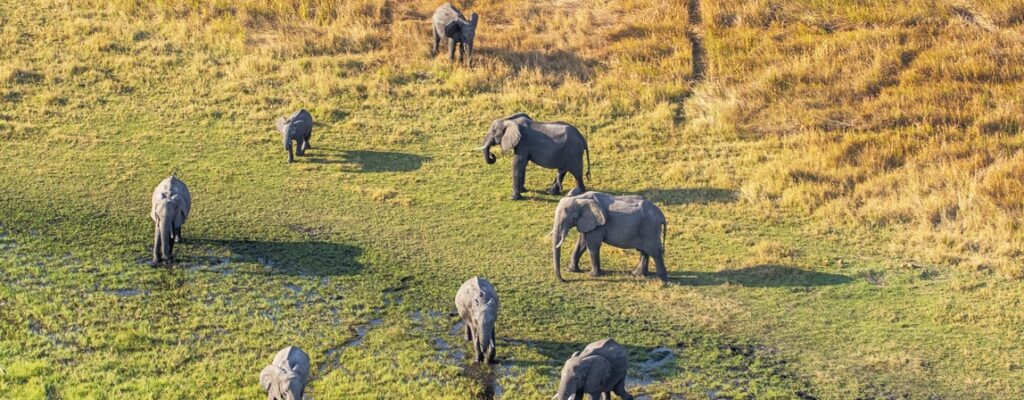Perspectives Posted on 2024-07-26 17:50:34
Opinions and strategies
Bee diversity, health, and sustainable agriculture in Africa
Bee diversity and health for sustainable agriculture and livelihood improvement in Africa
Keywords
Authors
S. Subramanian *, B. Nganso, N. N. Ndungu & K. Nkoba
International Centre of Insect Physiology and Ecology (icipe), Nairobi, Kenya
*Corresponding author
The designations and denominations employed and the presentation of the material in this article do not imply the expression of any opinion whatsoever on the part of WOAH concerning the legal status of any country, territory, city or area or of its authorities, or concerning the delimitation of its frontiers and boundaries.
The views expressed in this article are solely the responsibility of the author(s). The mention of specific companies or products of manufacturers, whether or not these have been patented, does not imply that these have been endorsed or recommended by WOAH in preference to others of a similar nature that are not mentioned.
The International Centre of Insect Physiology and Ecology (icipe) focuses on understanding bee diversity in ecosystems, the underlying factors impacting their health, and promoting their use in the pollination of food crops for sustainable conservation of bee diversity and to enhance food security and livelihoods in Africa.
Nearly 90% of flowering plants and 75% of global agricultural crops are animal-pollinated, with bees contributing the most to this pollination service [1,2,3]. Sub-Saharan Africa has about 2,755 described bee species with over 1,200 described in South Africa alone, out of over 20,000 globally [4,5]. In addition, social bees such as honey bees and stingless bees also provide honey, wax and propolis that are essential for human health and livelihoods in sub-Saharan Africa. Hence, effective harnessing of bee pollination services and conservation of bee biodiversity can sustainably improve agricultural productivity and job creation in Africa.
Bee diversity in Africa: In general, information on bee diversity is scanty and fragmented, despite the diverse agro-ecologies and vegetation types in Africa [4,5,6]. Plant–pollinator interaction data need to be documented in Africa, databased and made freely accessible in order to conserve pollinator biodiversity and enhance crop productivity.
Bee health: Bee decline is a global issue influenced by diverse factors [6,7]. In Africa, land cover change, pesticide use and climate change are the key drivers of bee decline, although their impacts remain largely inconclusive [8]. Our focus at icipe is to better understand the underlying factors affecting bee health and productivity in order to promote sustainable beekeeping in Africa.
Bees and sustainable agriculture: Globally, bees pollinate fruit, vegetable and nut crops that provide the micronutrients essential for human nutrition [1,9,10]. However, they are generally not integrated in the production of pollination-dependent crops in Africa. Recent studies by icipe in Kenya have shown that supplemental pollination of avocado plants by honey bees can enhance productivity by 20% [11] (Figure 1). Similarly, pollination by stingless bee species can enhance yields of bell pepper and cucumber by 15% [12] and 25% [13], respectively (Figure 1). Thus, harnessing bee pollination services can significantly contribute to food and nutritional security in Africa.

https://doi.org/10.20506/bull.2024.1.3497
References
- Klein, A. M., Vaissière, B. E., Cane, J. H., Steffan-Dewenter, I., Cunningham, S. A., Kremen, C. & Tscharntke, T. (2007). Importance of pollinators in changing landscapes for world crops. Proceedings of the Royal Society B: Biological Sciences, 274(1608), 303–313.
- Eilers, E. J., Kremen, C., Smith Greenleaf, S., Garber, A. K. & Klein, A. M. (2011). Contribution of pollinator-mediated crops to nutrients in the human food supply. PLOS ONE, 6(6), e21363.
- Ollerton, J., Winfree, R. & Tarrant, S. (2011). How many flowering plants are pollinated by animals? Oikos, 120(3), 321-326.
- Orr, M. C., Hughes, A. C., Chesters, D., Pickering, J., Zhu, C. D. & Ascher, J. S. (2021). Global patterns and drivers of bee distribution. Current Biology, 31(3), 451–458.
- Eardley, C. D., Gikungu, M. & Schwarz, M. P. (2009). Bee conservation in Sub-Saharan Africa and Madagascar: diversity, status and threats. Apidologie, 40(3), 355–366.
- Goulson, D., Nicholls, E., Botías, C. & Rotheray, E. L. (2015). Bee declines driven by combined stress from parasites, pesticides, and lack of flowers. Science, 347, 1255957–1255967.
- Traynor, K. S., Mondet, F., de Miranda, J. R., Techer, M., Kowallik, V., Oddie, M. A., Chantawannakul, P. & McAfee, A. (2020). Varroa destructor: A complex parasite, crippling honey bees worldwide. Trends in Parasitology, 36(7), 592–606.
- Dicks, L. V., Breeze, T. D., Ngo, H. T., Senapathi, D., An, J., Aizen, M. A., Basu, P., Buchori, D., Galetto, L., Garibaldi, L. A. & Gemmill-Herren, B. (2021). A global-scale expert assessment of drivers and risks associated with pollinator decline. Nature Ecology & Evolution, 5(10), 1453–1461.
- Stein, K., Coulibaly, D., Stenchly, K., Goetze, D., Porembski, S., Lindner, A., Konaté, S. & Linsenmair, E. K. (2017). Bee pollination increases yield quantity and quality of cash crops in Burkina Faso, West Africa. Scientific Reports, 7(1), 17691–17701.
- Khalifa, S. A., Elshafiey, E. H., Shetaia, A. A., El-Wahed, A. A. A., Algethami, A. F., Musharraf, S. G., AlAjmi, M. F., Zhao, C., Masry, S. H., Abdel-Daim, M. M. & Halabi, M. F. (2021). Overview of bee pollination and its economic value for crop production. Insect, 12, 688–711.
- Sagwe, R. N., Peters, M. K., Dubois, T., Steffan-Dewenter, I. & Lattorff, H. M. G. (2021). Pollinator supplementation mitigates pollination deficits in smallholder avocado (Persea americana Mill.) production systems in Kenya. Basic & Applied Ecology, 56, 392–400.
- Kiatoko, N., Raina, S. K., Muli, E. & Mueke, J. (2014). Enhancement of fruit quality in C. apsicum annum through pollination by Hypotrigona gribodoi in Kakamega, Western Kenya. Entomological Science, 17(1), 106–110.
- Kiatoko, N., Pozo, M. I., Van Oystaeyen, A., Musonye, M., Kika, J., Wäckers, F. & Jaramillo, J. (2021). African endemic stingless bees as an efficient alternative pollinator to honey bees in greenhouse cucumber (Cucumis sativus L). Journal of Apicultural Research, 62(5), 1–13.











